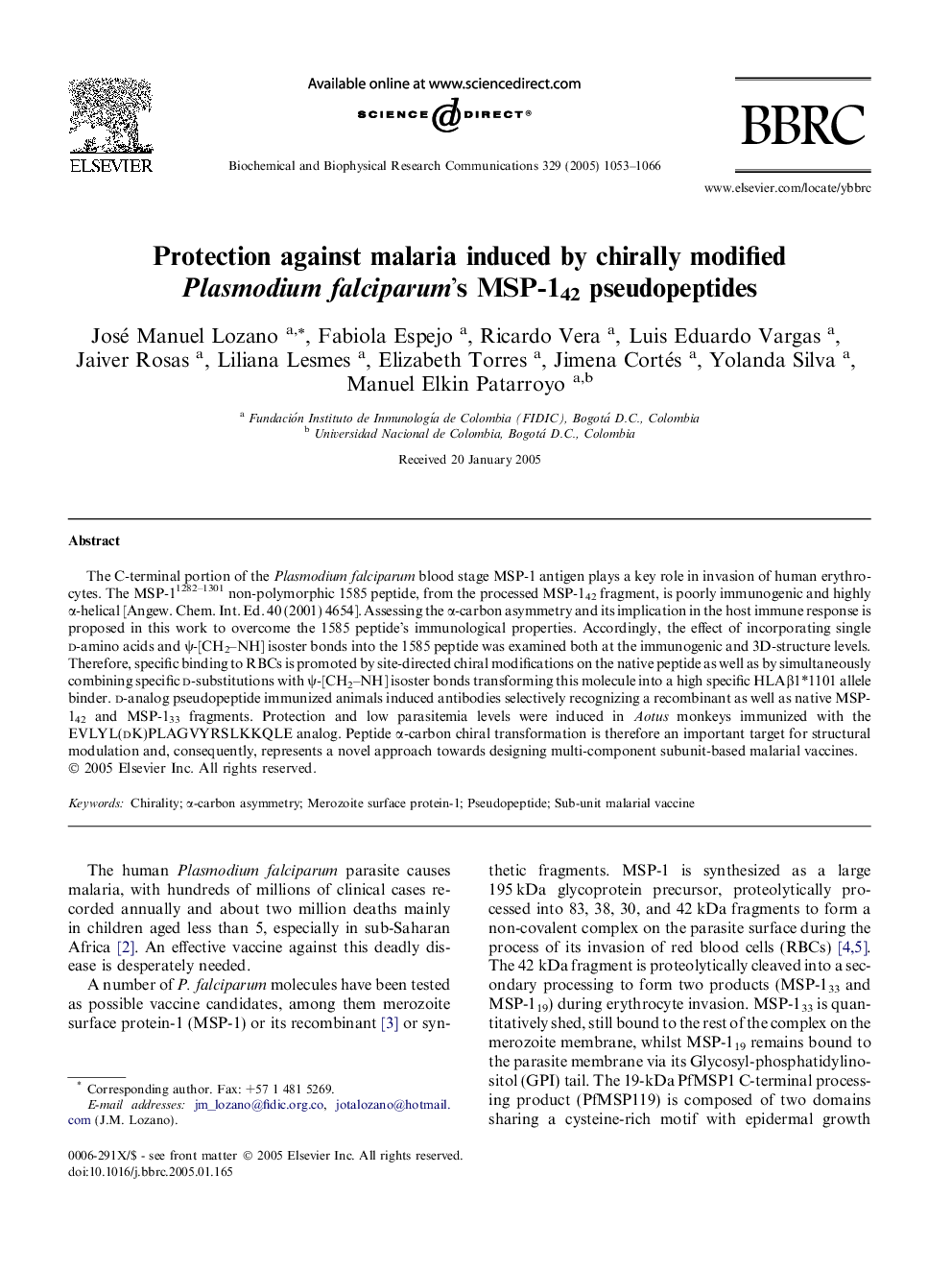| Article ID | Journal | Published Year | Pages | File Type |
|---|---|---|---|---|
| 10771116 | Biochemical and Biophysical Research Communications | 2005 | 14 Pages |
Abstract
The C-terminal portion of the Plasmodium falciparum blood stage MSP-1 antigen plays a key role in invasion of human erythrocytes. The MSP-11282-1301 non-polymorphic 1585 peptide, from the processed MSP-142 fragment, is poorly immunogenic and highly α-helical [Angew. Chem. Int. Ed. 40 (2001) 4654]. Assessing the α-carbon asymmetry and its implication in the host immune response is proposed in this work to overcome the 1585 peptide's immunological properties. Accordingly, the effect of incorporating single d-amino acids and Ï-[CH2-NH] isoster bonds into the 1585 peptide was examined both at the immunogenic and 3D-structure levels. Therefore, specific binding to RBCs is promoted by site-directed chiral modifications on the native peptide as well as by simultaneously combining specific d-substitutions with Ï-[CH2-NH] isoster bonds transforming this molecule into a high specific HLAβ1*1101 allele binder. d-analog pseudopeptide immunized animals induced antibodies selectively recognizing a recombinant as well as native MSP-142 and MSP-133 fragments. Protection and low parasitemia levels were induced in Aotus monkeys immunized with the EVLYL(dK)PLAGVYRSLKKQLE analog. Peptide α-carbon chiral transformation is therefore an important target for structural modulation and, consequently, represents a novel approach towards designing multi-component subunit-based malarial vaccines.
Related Topics
Life Sciences
Biochemistry, Genetics and Molecular Biology
Biochemistry
Authors
José Manuel Lozano, Fabiola Espejo, Ricardo Vera, Luis Eduardo Vargas, Jaiver Rosas, Liliana Lesmes, Elizabeth Torres, Jimena Cortés, Yolanda Silva, Manuel Elkin Patarroyo,
